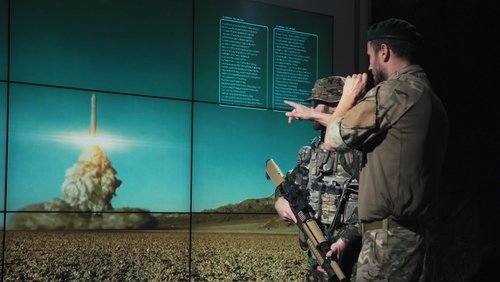Belgium (Brussels Morning Newspaper) Washington and Tel Aviv have made a joint pledge to “deny nuclear arms to Iran”, assuming a more aggressive posture and implicating the two countries would be willing to use military force to stop Tehran’s nascent nuclear programme in its tracks, if it appears on the brink of developing nuclear weapons.
The so-called “Jerusalem Declaration” was signed by US President Joe Biden and Israeli Prime Minister Yair Lapid during Biden’s first visit to Israel as president, and came a day after the US President told the media that he was open to “last resort” use of force against Iran.
“The United States stresses that integral to this pledge is the commitment never to allow Iran to acquire a nuclear weapon,” said a statement released after the signing, adding that the US is prepared to use “all elements of its national power” to ensure such a scenario would never come to pass.
Speaking after the signing ceremony, Lapid stressed that the change in joint posture is a way to prevent an open conflict, rather than lead to it. “The only way to stop a nuclear Iran is if Iran knows the free world will use force,” said Lapid. Biden stressed that preventing Iran from acquiring nuclear weapons was not only “a vital security interest” for Israel and the EU, but for the rest of the world as well.
The joint pledge comes as the negotiations on reviving the Iranian nuclear treaty – which would limit Tehran’s capacity to develop nuclear technology for military purposes – appear to have all but stalled.
The original 2015 treaty, the so-called Joint Comprehensive Plan of Action (JCPOA), was abandoned by former US President Donald Trump, who reinstated sanctions against Iran, while Tehran responded by expanding its nuclear programme significantly outside of the limitations set by the treaty.
As Biden came to power, the negotiations on reviving the treaty started in Vienna, with Germany, the EU and all United Nations Security Council permanent members, though the negotiations stalled as ultra-conservative hardline cleric Ebrahim Raisi was elected new President of Iran last year, replacing moderate Hassan Rouhani. Some US and Israeli analysts warn that Tehran might now be negotiating in bad faith, stalling for time until it manages to develop nuclear weapons.




